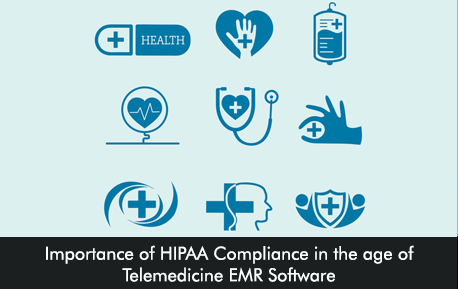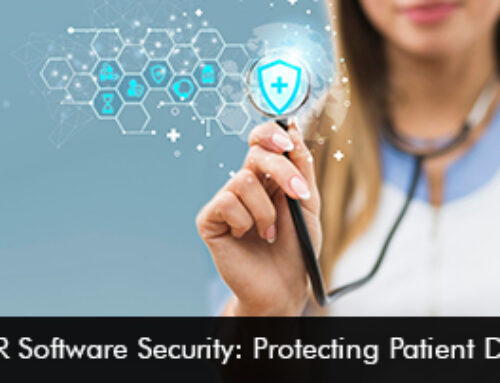The COVID-19 pandemic forced healthcare providers to think about remote healthcare solutions for patient populations to avoid the spread of the contagious virus. The majority of the hospitals and clinics deployed Telemedicine EMR Software solutions to extend care to patients from the comfort of their homes. Telemedicine was seen as an effective way to provide prompt diagnosis and treatment through virtual sessions.
When using technology solutions hospitals and healthcare providers need to make sure that the platform is strongly encrypted and is HIPAA Compliant to protect patient’s confidential health information from cybersecurity threats and ransomware attacks.
What is HIPAA?
HIPAA stands for Health Insurance Portability and Accountability Act of 1996 which aims to offer security of patient’s medical information. The law sets standards for security to reduce the risk of cyber-attacks and frauds.
HIPAA Compliance in Telemedicine
The doctor has the responsibility to protect patient’s information over video sessions. Files are shared electronically and images are also shared which need to be encrypted. When using a telemedicine platform to offer care to patients providers should look for two features,
- Completely encrypted data transfer
- No storage of video
There are several technical regulations and specifications according to the HIPAA security rules to protect PHI, these consist of the following:
- Access controls – The implementation of access controls ensures that only authorized users can access PHI.
- Audit controls – Audit controls record actual and tried access to PHI through activity logs.
- Integrity controls – Implementing integrity controls makes sure the PHI cannot be damaged or changed improperly.
- Automatic log-off features – automatic log-off features on both smart-phones and laptops safeguard it from unauthorized users which protects data breeches and ups overall security.
Going beyond HIPAA Compliance
As a medical practice, your priority is to protect patient data round the clock and certain strategies can help enhance your security protocols.
- Cybersecurity training – Cybersecurity training sessions should be conducted regularly so staff members understand these threats and know the correct protocols to deal with phishing emails. Once your staff is prepared and knows how vital it is to secure health data they will take patient information protection seriously.
- Strong passwords – Staff members should use strong and inimitable passwords for their accounts to avoid hackers hacking into their systems.
- Use HIPAA gap assessment services – The robust assessment services helps medical organizations to meet regal requirements. The professional teams help you identify any gaps in security to protect your practice from phishing and data breaches.







